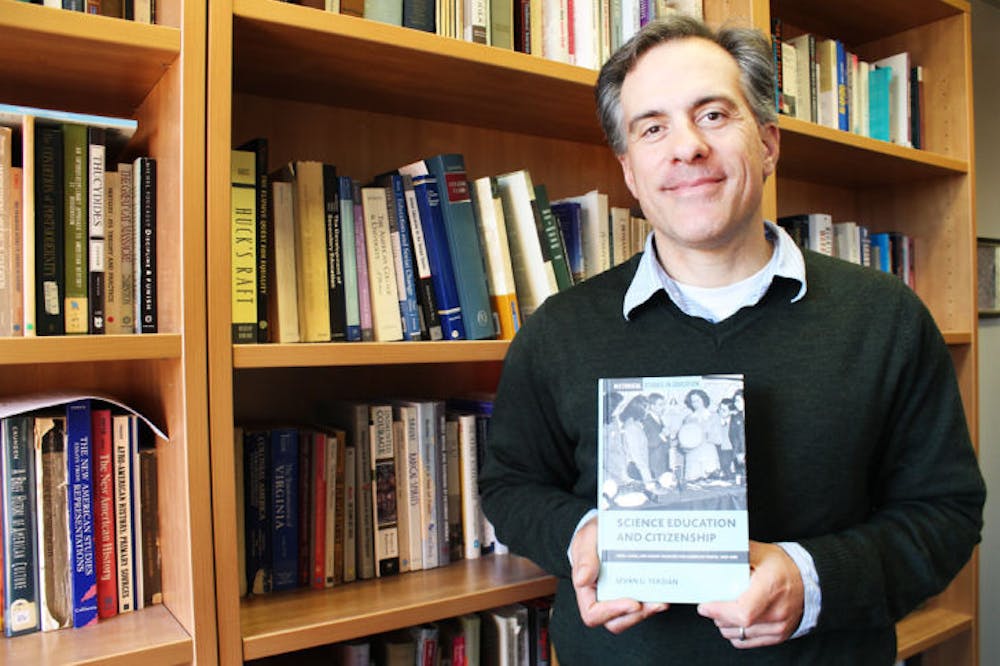In a society where science is the future, a UF associate education professor published a book about the history and impact of science programs.
Sevan Terzian, an associate professor in the School of Teaching & Learning, recently published a book entitled “Science Education and Citizenship.”
The book explores the initiative to improve science education through his investigation of the history behind it.
“Many of us are familiar with science clubs and fairs and talent searches, but most of us don’t really have a sense as to why they got started and why they remain so popular,” Terzian said.
The answers came a lot earlier in history than Terzian expected. His book discusses history starting with science fairs in the 1920s through the end of the 1950s.
His theory states that by participating in science programs, students develop stronger reasoning skills that are going to allow them to become good citizens.
Grace Ooi credits her passion for science to her involvement in extracurricular activities.
“You read about concepts in books, and you learn about things in class, but it was only because of the exposure I got [from] hands-on learning through science programs where I discovered what I wanted to do,” said the 20-year-old material sciences and engineering sophomore.
But Terizan emphasizes science education is not just for the future scientist.
“A democracy couldn’t work if you had people who were not able to think rationally or to think like scientists,” he said.
Sevan Terzian, a UF associate professor of social foundations and education in the School of Teaching & Learning, introduces his newly published book, “Science Education and Citizenship.”






